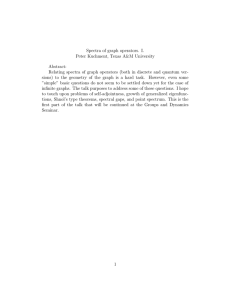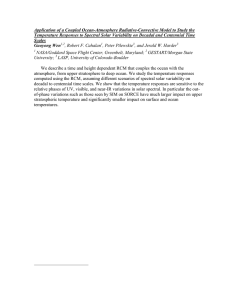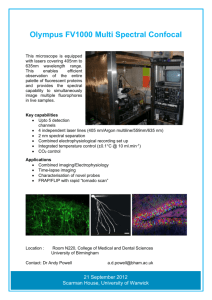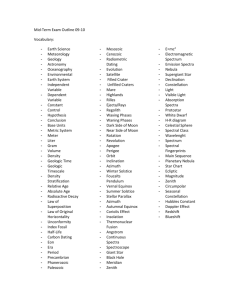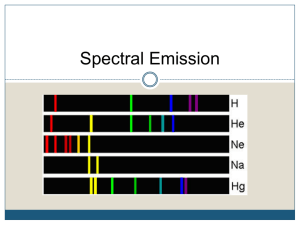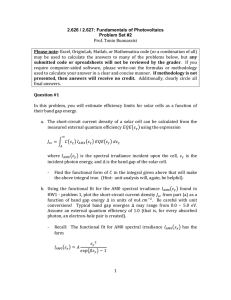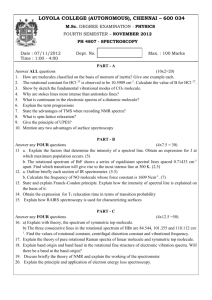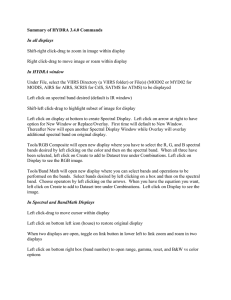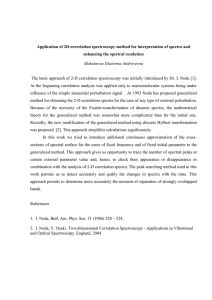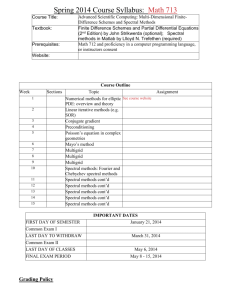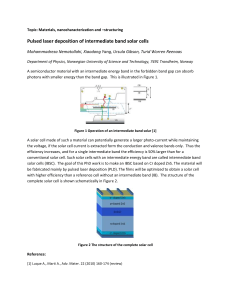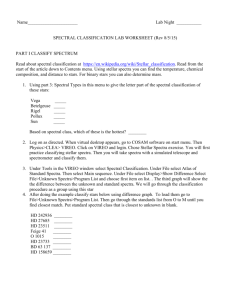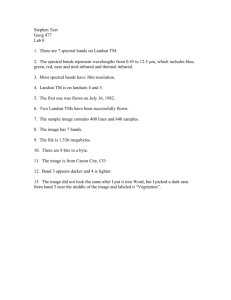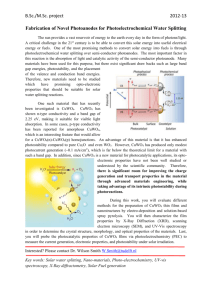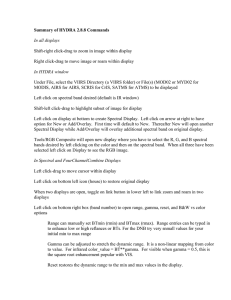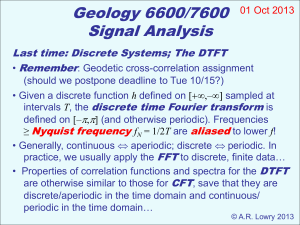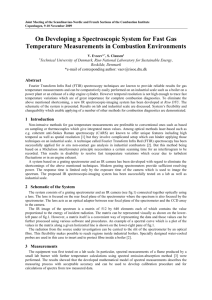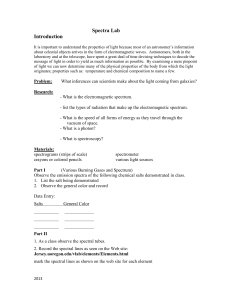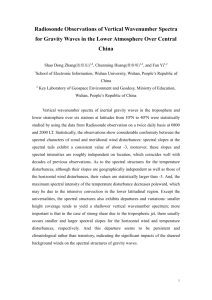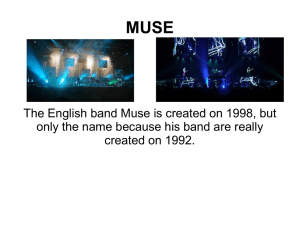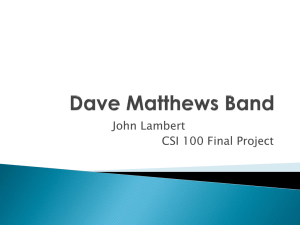III-2_Benner
advertisement
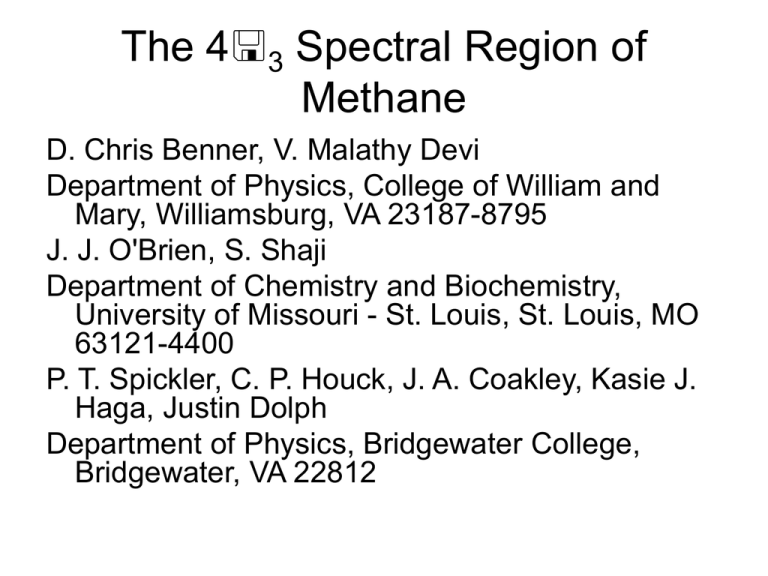
The 43 Spectral Region of Methane D. Chris Benner, V. Malathy Devi Department of Physics, College of William and Mary, Williamsburg, VA 23187-8795 J. J. O'Brien, S. Shaji Department of Chemistry and Biochemistry, University of Missouri - St. Louis, St. Louis, MO 63121-4400 P. T. Spickler, C. P. Houck, J. A. Coakley, Kasie J. Haga, Justin Dolph Department of Physics, Bridgewater College, Bridgewater, VA 22812 Adel and Slipher, Phys. Rev. 46, 902 (1934) Problems with Band Models • • • • • • • • Placement of spectral lines Intensity distribution of spectral lines T≠T1*T2 Gas must be Isothermal Gas must all be at the same Pressure Almost all scattering models are excluded Temperature dependence is simple at best Band Models based upon planetary spectra instead of laboratory spectra Distribution of Lower States J” % of Lines 296K Intensity (x10-24 cm/molecule) 150K 100K 40K 0 1 2 3 4 5 6 7 8 9 3.5 2.3 7.5 20.4 28.9 22.3 10.3 3.1 1.4 0.2 1.63 1.57 4.63 30.05 44.30 32.68 9.25 2.32 1.38 0.34 4.53 4.15 11.08 61.96 74.92 43.14 9.11 1.61 0.64 0.10 8.27 7.21 17.40 83.71 82.79 37.09 5.81 0.72 0.19 0.02 31.56 21.96 33.71 82.29 32.95 4.77 0.20 0.00 0.00 0.00 Total 100.0 128.14 211.24 243.21 207.44 Summary • Methane bands appear in the visible and near infrared of spectra outer solar system objects • These band systems are very complex interactions of many bands • At room temperatures the spectral lines overlap severely • At outer solar system temperatures and low pressure the spectrum is measurable with the multispectrum technique • A line list is being produced for the 890 nm band complex • This line list will make possible realistic modeling of outer solar system object – even including scattering
